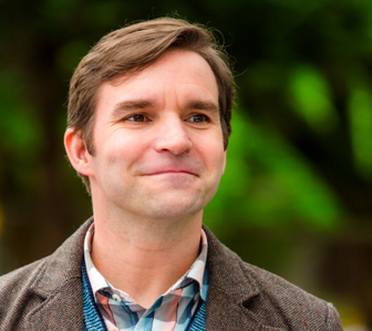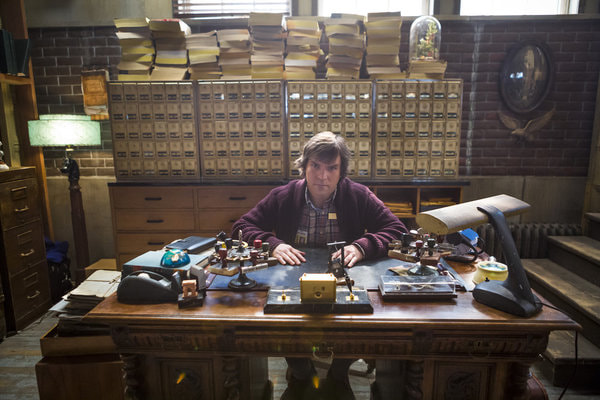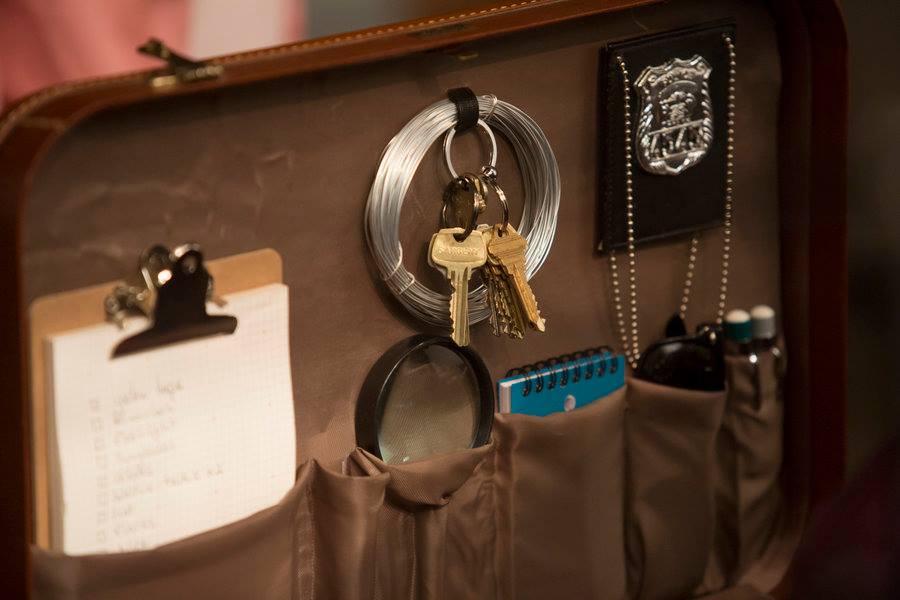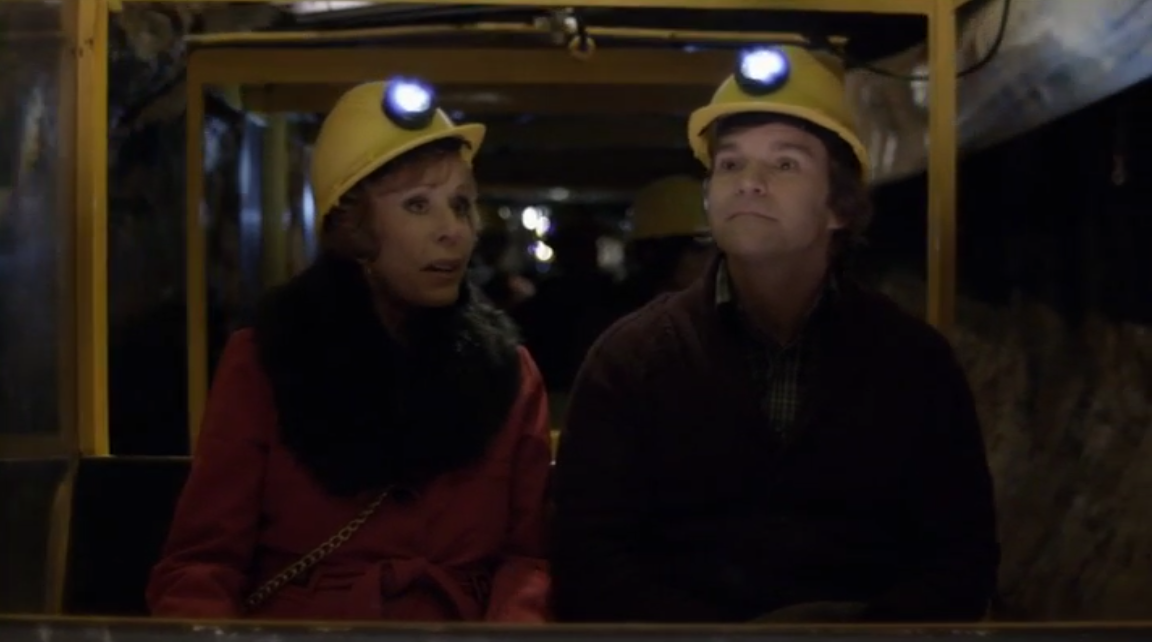It's my honor and pleasure to present to you the first installment of a three-part series on our beloved Norman Dorman.
Where the Connection Began
Stories fuel other stories. Thus, it is not surprising that the storied history of SSD includes inspiration from other writers—in this case, from J.R.R. Tolkien’s epic about a hobbit’s journey. The name Bilbo means, according to the Oxford English Dictionary, “a sword used in former times, noted for the temper and elasticity of its blade.” If you have read The Hobbit, you will recognize at once that Bilbo, the main character, goes on an adventure very much the stuff of legend, and becomes well-respected by his warrior dwarf friends for his audacity and ingenuity, especially in cutting through bonds—and is often accompanied by his small but valiant sword, “Sting.”
| Norman’s name refers to fighting strength. It alludes to the Normans, a people historically characterized by strong military power—a name also connected with the Vikings. Like Bilbo, Norman’s desire to guard and protect will lead him on unexpected adventures. So let’s look at the story of Bilbo Baggins, an adventurer whose classic tale sits among the great stories of journey literature. His story may inadvertently shed some light on the journey of Norman Dorman thus far—and the journey to come. |
An Introduction to Bilbo Baggins & Norman Dorman
| Norman Dorman (as we meet him in the Pilot) is snug in his position at the Dead Letter Office, certain of his work, of his surroundings, and (eventually) of his girl. He loves books with pictures, is good at making spaces for people, and is a man of small stature and ready appetite. He had a mother who was committed to her own adventures, and because of his history of foster homes and displacement, Norman has felt his share of bullies and insecurity. But Norman discovers that there are people like Oliver who believe in him, and that he is an important part of a common mission. In addition, he has his own convictions, and a good share of curiosity, the beginning traits of an adventurer. |
The Beginning of Adventuring: Curiosity & Discovery
Lesson 1. In which it is important to be prepared.
I can’t help remembering Bilbo’s consternation at not having time to grab a walking stick, a hat, some money, and especially his pocket-handkerchief before leaving on his adventure.
In Time To Start Livin', Norman brings out a field kit he’s put together for just such adventures as might be expected. “This is my field kit. I'm thinking, now that we're gonna be in the field more, we should be prepared for anything.”
| Lesson 2. In which one must learn to be bold. Bilbo presents two sides of his character. The Baggins side of him would like nothing to do with adventure—“We are plain quiet folk and have no use for adventures. Nasty disturbing uncomfortable things! Make you late for dinner!” The Took side of him rises up in defense of himself, and especially contends with the question of whether or not he can make it as a “burglar,” but his (understandable) initial consternation is in context to the dwarves' expedition to the Lonely Mountain—and a dragon’s hoard. |
Lesson 3. In which a solo investigation is training for leadership.
Bilbo is at one point left alone in the dark, and it is there that he discovers the tools he needs for continuing work and service to his friends on behalf of the mission. After that adventure, there are many times that Bilbo must keep his head when the dwarves encounter unexpected and sometimes dangerous situations. One of Bilbo’s ideas involve packing the dwarves in barrels so they can escape captivity—and one of Bilbo’s feats is managing to remain unseen until he can unpack them again.
| In The Future Me, Norman goes on his first solo adventure. Shane tells Oliver, “I wonder how Norman's doing at the furniture store. It’s his first solo investigation…Just thought maybe it's too soon.” Oliver replies, “It's never easy to push one's protégé out of the nest, Ms. McInerney, but Norman is ready to spread his wings a little, and I think this is a good test flight for him.” Oliver afterwards tells Norman he is proud of him for his work. Later, when Norman and Rita are checking to see if a marriage license has been filled out, Norman tells Rita, “Follow my lead.” He is becoming more courageous, not only in work, but in relationship. |
Bilbo loves maps and riddles. So does Norman. It’s probably because of his patiently curious nature, and his natural inclination to give studious and careful attention to whatever's before him—things or people. So in The Treasure Box, when Norman sees the puzzle box that becomes their next project, he understands all about mathematical formulas, and hidden spaces, and keys. He is not afraid to take the time to figure out the puzzle box, and of course, when Shane and Oliver are locked in a bank vault, Norman has another cousin that can help with the situation. Resourceful Norman. “Friends don’t leave friends locked in bank vaults…”
Bilbo makes a decision, after he has become lost in the darkness alone, to search the goblin tunnels in an effort to look for the light. He has his own wits, and his own riddles, as well as a bit of sting about him with his sword, but he also has a source of help that comes from outside of himself. This help is in the form of a magic ring, and in The Hobbit, that signifies the intention of something greater.
It is interesting that some of the most valuable things we learn about Norman are when he finds strength even in very dark places. In A Hope & A Future, he and his grandma have quite the conversation in the depths of an old mining tunnel. Norman says of his courage in the dark, “When I was 10, I liked to pretend I was Indiana Jones, exploring the Temple of Doom. One time, I got stuck in old man Morgan's cellar down the street. Nobody knew where I was. It was so dark and I was so scared. I yelled and I screamed, but nobody could hear me. When I finally gave up, I laid down on the ground, and that's when I saw it—a sliver of light. I hadn't noticed it before. That's when I knew everything was gonna be okay…I like coming down here. It reminds me that, no matter how dark it gets, light will always find a way in.” By the end of the episode, Norman himself becomes a source of hope for his grandma. Before she goes into surgery, she tells Norman that he is her “sliver of light.”
| At this point, we have traced enough of both tales to know that our adventurers are proving themselves worthy of being regarded as heroes. They have enough determination to be called brave, and enough knowledge of the world to know the beauty and goodness of friendship and love. But they will yet be challenged to protect that goodness, and they will be called upon to uphold truth. Interestingly, the name Bilbo, while suggesting the part of a warrior in its elusion to a blade, also references conviction in battle (temper, or hardness) and ability to adapt (elasticity). It is not only one’s willingness to fight—it is the character and quality of the person that proves them. In Part II, we will trace the continuing story of Norman’s adventures, and how Bilbo’s story still speaks amidst that journey. -Kirsten The Tale of Norman Dorman—and Bilbo Baggins: Part I | Part II | Part III |






 RSS Feed
RSS Feed
